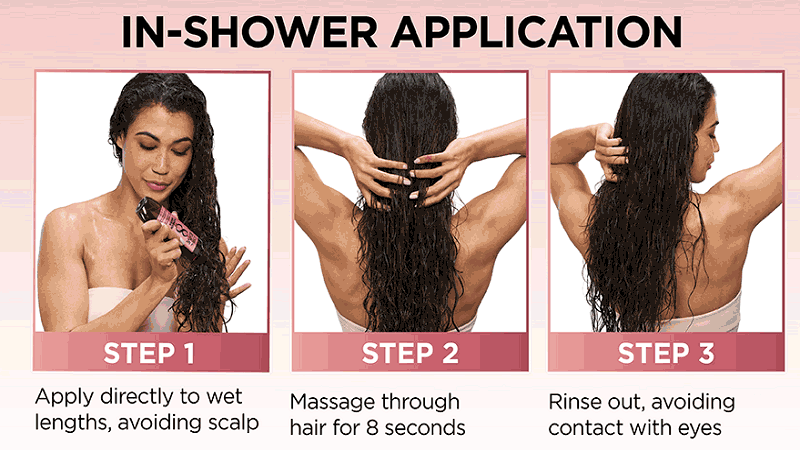Having hard water can be a real pain — but it can be especially frustrating when it comes to your hair. Hard water can leave your hair feeling dry and looking dull, and can even cause it to break more easily. In this blog post, we’ll explore what exactly hard water does to your hair, the effects it can have, and the ways you can fight back against it.
What Causes Hard Water?
Hard water can have a negative effect on your hair. It contains high amounts of minerals, such as magnesium and calcium, which can cause your hair to become dry and brittle.
These minerals can also make it difficult for shampoo and other cleansing products to lather properly, resulting in residue buildup that can cause your hair to look dull and lifeless. Additionally, hard water can make it difficult to rinse out styling products, resulting in product buildup that can cause your hair to become greasy and limp.
To help protect your hair from the damaging effects of hard water, use a water softener and deep conditioning treatments.

Different Types of Hard Water
Hard water is a common issue in many households, but what does it really mean for your hair? Hard water contains a high concentration of minerals such as calcium and magnesium, which can leave your hair feeling rough and brittle. These minerals can also clog your hair follicles, making it hard for your scalp to get the nourishment it needs.
As a result, your hair can become dry, frizzy, and difficult to manage. In addition, the minerals in hard water can actually strip the natural oils from your hair, leaving it feeling dull and lifeless.
So if you have hard water in your home, it’s important to take steps to protect your hair from the damage it can cause.
How Hard Water Impacts Hair Quality
Hard water can have a major impact on the health and quality of your hair. When hard water comes into contact with your hair, it can leave a residue of minerals, such as calcium and magnesium, on the strands.
This can cause a variety of issues, from dry and brittle hair to irritation and split ends. In addition, hard water can make it difficult for shampoos and conditioners to lather properly, resulting in less effective cleansing and conditioning.
All in all, hard water can take its toll on your hair, leaving it dry, dull, and damaged.
a. Hair Becomes Brittle and Dry
Did you know that hard water can have a major impact on your hair? It can cause your hair to become brittle and dry, as the minerals in hard water can build up and create a barrier that prevents your hair from retaining moisture. This can lead to split ends, breakage, and difficulty styling your hair.
To combat this, use products specifically designed to help your hair resist the effects of hard water, such as clarifying shampoos and conditioners. Additionally, you can install a water softener to remove the minerals from your water, allowing your hair to stay hydrated and healthy.
b. Hair Loss and Scalp Irritation
Hard water can wreak havoc on your hair and scalp, leading to dryness, irritation, and even hair loss. Hard water contains a high concentration of minerals, such as calcium and magnesium, which can build up on the scalp and hair shaft.
This buildup can cause dryness and damage, weakening the hair and leading to breakage. Additionally, hard water can cause scalp irritation, leading to itching, flaking, and redness.
Long-term exposure can even result in hair loss, as the mineral buildup can eventually clog the pores and stop the hair from growing properly. To combat hard water’s negative effects, it is important to use a shampoo and conditioner made for hard water, as well as use a clarifying shampoo to remove any mineral buildup.
c. Hair Color Fading
Hard water can wreak havoc on your hair color, leaving it looking dull and faded. Not only that, but it can also leave your hair feeling dry and brittle.
This is because hard water contains a high concentration of minerals such as calcium and magnesium, which can cling to the hair shaft and leave a residue. This residue can cause color to fade faster and can even prevent your hair from taking in nutrients from your hair care products.
If you live in an area with hard water, you may need to take extra steps to keep your hair looking vibrant and healthy.
How to Test if You Have Hard Water
Having hard water can be a real headache for your hair care routine. Hard water is essentially water with a high mineral content, and it can be detrimental to your hair’s health.
Not only does hard water make it difficult to lather up shampoo, it can also leave your locks feeling dry and brittle. Therefore, it’s important to test for hard water if you suspect it might be an issue.
Signs of hard water include a buildup of soap scum, a metallic smell, and discoloration of your hair and skin. If you have any of these indicators, it’s time to test your water. There are several methods you can use, including a hardness test strip or a home water testing kit. Once you have the results, you can determine whether or not you need to install a water softening system to protect your hair and skin.
How to Protect Your Hair from Hard Water
Hard water can cause serious damage to your hair if it’s not taken care of properly. Hard water contains a high concentration of minerals, such as calcium and magnesium, which can build up on the hair shaft and make it look dull and dry.
This buildup can also cause breakage and split ends, as well as itchy scalp and dandruff. To protect your hair from hard water, use a weekly deep-cleansing shampoo to remove the buildup and use a clarifying rinse afterwards.
Additionally, adding a water-softening product to your shower can help reduce the amount of minerals in the water, and using a leave-in conditioner can help keep moisture in your hair. Lastly, make sure to use a wide-tooth comb to detangle your hair, as this will help reduce breakage caused by the minerals in hard water.
a. Filters
Hard water can cause damage to your hair, leaving it feeling dry and brittle. The minerals present in hard water, such as calcium and magnesium, can cause a buildup of residue on your hair, resulting in a dull, lifeless appearance.
This residue can also make it difficult to properly rinse out shampoo and conditioner, leaving your hair feeling greasy and weighed down. Hard water can also strip the natural oils from your hair, further drying it out and making it more prone to breakage.
To combat the effects of hard water, it’s important to use a filter on your shower head to reduce the amount of minerals in the water. Additionally, use a clarifying shampoo to help remove any buildup from your hair, and use a deep conditioning treatment to help replenish moisture.
b. Shower Heads
Hard water is a common problem for many people, and it can have a significant impact on your hair. The minerals found in hard water, such as calcium and magnesium, can cause buildup on your scalp and hair, leading to dryness, split ends, and frizz.
Over time, your hair can become dull and brittle due to the buildup of these minerals. Fortunately, there are several ways to combat the effects of hard water on your hair, including using a shower head filter or special shampoo and conditioners formulated to remove hard water minerals.
By taking the time to invest in the right products and techniques, you can keep your hair looking and feeling healthy despite the presence of hard water.
c. Hair Care Products
Hard water can have a negative impact on your hair health by causing dryness, dullness, and even breakage. The minerals found in hard water are known to be harsh on the hair and can strip it of natural oils, leaving it feeling dry and brittle.
Over time, these minerals can also build up on the scalp, creating an environment that can lead to scalp irritation, dandruff, and even hair loss. The best way to combat the effects of hard water is to use specialized hair care products designed to protect hair from the effects of hard water.
These products, such as conditioners and shampoos, are formulated with chelating agents that are designed to bind to the minerals in hard water, making them easier to rinse away. Additionally, using a shower filter to reduce the mineral content of hard water can help protect your hair from the damaging effects of hard water.
Tips for Caring for Your Hair in Hard Water Areas
Living in a hard water area can be a challenge for your hair. Hard water is high in calcium and magnesium which can leave your hair feeling dry and brittle.
It can also clog hair follicles, resulting in dandruff and other scalp issues. Luckily, there are a few tips and tricks you can use to protect your hair and keep it looking and feeling healthy, even in a hard water area.
First, use a shower filter to reduce the amount of calcium and magnesium in your water. This will help reduce the amount of buildup on your hair. Second, use a clarifying shampoo and conditioner once a week to remove any excess buildup on your hair. Third, use a deep conditioning treatment after every shampoo to nourish and restore your hair’s natural moisture. Finally, use a leave-in conditioner or hair oil to protect your hair and keep it looking shiny and healthy. With these tips, you can keep your hair healthy and damage-free in a hard water area.

